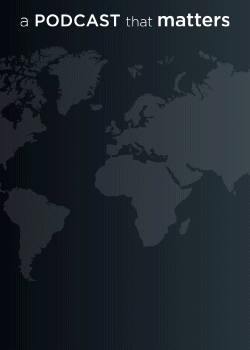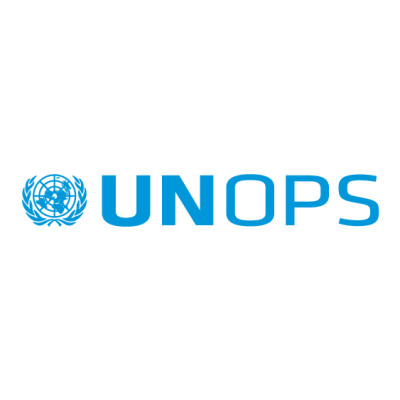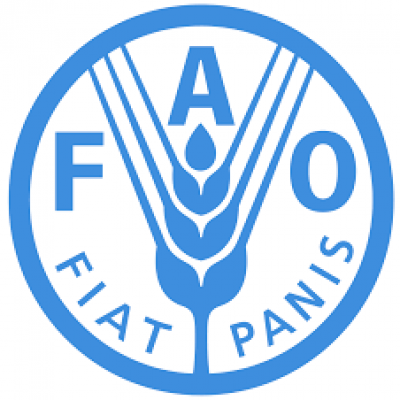Details
Description
Background
UN Women, grounded in the vision of equality enshrined in the Charter of the United Nations, works for the elimination of discrimination against women and girls; the empowerment of women; and the achievement of equality between women and men as partners and beneficiaries of development, human rights, humanitarian action and peace and security. Placing women’s rights at the center of all its efforts, UN Women leads and coordinates United Nations System efforts to ensure that commitments on gender equality and gender mainstreaming translate into action throughout the world. It provides strong and coherent leadership in support of Member States’ priorities and efforts, building effective partnerships with civil society and other relevant actors.
Afghanistan is one of the world’s most complex emergencies, and the world’s largest humanitarian crisis. Afghan people are grappling with the impact of conflict, poverty, economic decline, and natural disasters. In this context, Afghan women and girls face unique vulnerabilities and require urgent support as gender inequality is interwoven with conflict dynamics and humanitarian needs. It is essential that Afghan women and girls can continue to shape the development of their country, and that their gains are protected. UN Women remains fully committed to supporting Afghan women and girls and to putting them at the center of the global response to the crisis in Afghanistan.
UN Women has been in Afghanistan for two decades. UN Women’s programming approach is informed by analysis of the political, economic and humanitarian situation, risks to and capacities of partner organizations, and needs of Afghan women and girls. UN Women Afghanistan currently has four key programme priorities: (1) Gender in Humanitarian Action, (2) Ending Violence Against Women, (3) Women’s Economic Empowerment, and (4) Women, Peace and Security.
Objective of the Assignment:
The main objective of the assignment is to review and assess the efficacy and applicability of international human rights monitoring and accountability mechanisms in the context of the unprecedented abuses of women’s rights in Afghanistan. The international response invoked to date has not improved the trajectory for Afghan women and girls. Existing global human rights principles have not successfully been operationalized against mass, institutionalized, systematic, State-sponsored gender oppression, as is the case currently in Afghanistan. Instead, international political dynamics limit global consensus on taking concerted and determined action against patriarchal violations in Afghanistan. As a result, the situation of women and girls continues to deteriorate despite a range of strategies and tools deployed to restrict accession into the international community and condemn grave women’s rights violations.
The consultant will deliver an options paper outlining existing and innovative global human rights, political, and diplomatic tools and mechanisms, and examining their applicability to the current women’s rights crisis in Afghanistan. Initial tools and strategies under international human rights law and within the international political system have been developed in the report of the Expert Group Meeting on International Strategies and Tools to Address the Situation of Women and Girls in Afghanistan. Based on their knowledge of international political dynamics on women’s rights and previous monitoring and accountability mechanisms utilized globally, the consultant will provide expertise on their potential applicability in Afghanistan today.
Under the direct supervision of the WPS Programme Manager, the consultant will be responsible for delivering an options paper outlining existing and innovative global human rights, political, and diplomatic tools and mechanisms as applied to the current women’s rights crisis in Afghanistan. This will be an independent paper that will inform discussion at a technical-level meeting on the topic. Following the meeting, the consultant will support the drafting and finalizing of a report documenting the outcomes of the technical meeting.
Duties and Responsibilities
Scope of the Assignment:
- Develop options paper that will inform a technical level meeting, including:
- Outlining existing human rights, political, and diplomatic mechanisms and tools available to states and the international community for women’s rights monitoring and accountability in the Afghan context;
- Assessing the comparative advantages and disadvantages of each tool or mechanism;
- Analyzing available evidence to examine challenges and lessons learnt from other contexts on the scope, function, and impact of implementing different tools and mechanisms;
- Developing innovative ideas to build on existing legal and political concepts for addressing mass women’s rights abuses;
- Developing recommendations on which tools are best suited for the current Afghan context and suggestions to navigate the respective opportunities and challenges in operationalizing them, including what can be done in the short-, medium- and long-term.
- Support in the design and delivery of a technical meeting to discuss the options paper and further develop ideas, including facilitation. This will include technical support for the meeting preparation and execution.
- Draft a report of the technical meeting jointly with the UN Women WPS Programme Manager and other UN Women staff.
Deliverables |
Deadline |
|---|---|
|
7 January 2024 |
|
Late January 2024 |
|
Late February 2024 |
Competencies
Core Values
- Respect for Diversity;
- Integrity;
- Professionalism;
Core Competencies
- Awareness and Sensitivity Regarding Gender Issues;
- Accountability;
- Creative Problem Solving;
- Effective Communication;
- Inclusive Collaboration;
- Stakeholder Engagement;
- Leading by Example;
Please visit this link for more information on UN Women’s Core Values and Competencies: http://www.unwomen.org/-/media/headquarters/attachments/sections/about%20us/employment/un-women-employment-values-and-competencies-definitions-en.pdf
Required Skills and Experience
Education:
- Master's degree in a relevant field such as international law, politics, human rights, or a related field.
- Bachelor’s degree in the above disciplines with two years of additional relevant experience may be considered in lieu of a master’s degree.
Experience:
- At least 15 years of experience working with or in international legal and human rights mechanisms.
- Demonstrable experience working with or in the UN system or related legal or human rights systems.
- Demonstrable experience in developing legal or policy documents.
- Good understanding of the political and women’s rights context in Afghanistan post-August 2021.
- Experience working on women’s rights and gender issues would be an advantage.
- Strong analytical skills and ability to clearly synthesize complex subjects and present clear findings.
- Demonstrated ability to work independently and deliver high-quality results within tight deadlines.
- Excellent oral and written communication in English.
Language Requirements:
- Fluency in written and spoken English is required.
- Knowledge of the other UN official working language is an asset.
Individual consultants will be evaluated based on the following methodology: Only candidates obtaining a minimum of 49 points in the technical evaluation would be considered for the financial evaluation.
Criteria Weight Technical: 70% (70 points)
- Criteria 1: Education - Master's degree in a relevant field such as international law, politics, human rights, or a related field (15 points)
- Criteria 2: Professional Experience - at least 7 years of experience working with or in international legal and human rights mechanisms, particularly within the UN or related legal or human rights systems (30 points)
- Criteria 3: Demonstrable experience in developing legal or policy documents, particularly including analysis on the Afghan context post-2021 and/or women’s rights issues (25 points)
Financial: Lowest Financial Proposal: 30% (30 points)
The points for the Financial Proposal will be allocated as per the following formula:
- Contract will be awarded to the technically qualified consultant who obtains the highest combined score (financial and technical).
- The points for the Financial Proposal will be allocated as per the following formula: (Lowest Bid Offered*)/ (Bid of the Consultant) x 30.
- 'Lowest Bid Offered' refers to the lowest price offered by Offerors scoring at least 49 points in the technical evaluation.
Interested Individual Consultants must submit the following documents/information to demonstrate their qualifications.
- A cover letter with a brief presentation of your consultancy explaining your suitability for the work and link to portfolio of work;
- UN Women Personal History form (P-11) which can be downloaded from http://www.unwomen.org/about-us/employment;
- Personal CV; and Financial proposal; Proposed inclusive daily rate.
The above-mentioned documents should be merged in a standalone file including all them, since the online application submission does only permit to upload one file per application. Incomplete submission can be a ground for disqualification.
Application:
- All applications must include (as an attachment) the completed UN Women Personal History form (P-11) which can be downloaded from Application and recruitment process | About us: Careers at UN Women | UN Women – Headquarters Kindly note that the system will only allow one attachment. Applications without the completed UN Women P-11 form will be treated as incomplete and will not be considered for further assessment.
Note:
In July 2010, the United Nations General Assembly created UN Women, the United Nations Entity for Gender Equality, and the Empowerment of Women. The creation of UN Women came about as part of the UN reform agenda, bringing together resources and mandates for greater impact. It merges and builds on the important work of four previously distinct parts of the UN system (DAW, OSAGI, INSTRAW, and UNIFEM), which focused exclusively on gender equality and women's empowerment.
Inclusion Statement:
At UN Women, we are committed to creating a diverse and inclusive environment of mutual respect. UN Women recruits employ, trains, compensates and promotes regardless of race, religion, color, sex, gender identity, sexual orientation, age, ability, national origin, or any other basis covered by appropriate law. All employment is decided on the basis of qualifications, competence, integrity, and organizational need.
If you need any reasonable accommodation to support your participation in the recruitment and selection process, please include this information in your application.
UN Women has a zero-tolerance policy on conduct that is incompatible with the aims and objectives of the United Nations and UN Women, including sexual exploitation and abuse, sexual harassment, abuse of authority, and discrimination. All selected candidates will be expected to adhere to UN Women’s policies and procedures and the standards of conduct expected of UN Women personnel and will therefore undergo rigorous reference and background checks. (Background checks will include the verification of academic credential(s) and employment history. Selected candidates may be required to provide additional information to conduct a background check.)




